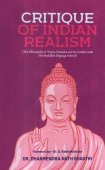Perception: 2 definitions
Introduction:
Perception means something in Hinduism, Sanskrit. If you want to know the exact meaning, history, etymology or English translation of this term then check out the descriptions on this page. Add your comment or reference to a book if you want to contribute to this summary article.
In Hinduism
Ayurveda (science of life)
Source: INSA Digital Repository: Caraka’s Approach to KnowledgePerception or “Knowledge gained through Perception” (Sanskrit: pratyakṣa) refers to one of various means of accessing exact Knowledge, according to the Charaka Samhita (verse 11.3-6).—Knowledge from direct perception arises as a result of the combined action of sense objects, sense, mind and self, each of which is indispensable for perception (Charaka Samhita verse 11.17). Though perception has been sub-classified into five sub-types based on contact with substance, guna etc., authorities agree that, ‘in reality knowledge that results as the effect of sense contact’ would fulfil the definition of perception.

Āyurveda (आयुर्वेद, ayurveda) is a branch of Indian science dealing with medicine, herbalism, taxology, anatomy, surgery, alchemy and related topics. Traditional practice of Āyurveda in ancient India dates back to at least the first millenium BC. Literature is commonly written in Sanskrit using various poetic metres.
Yoga (school of philosophy)
Source: ORA: Amanaska (king of all yogas): A Critical Edition and Annotated Translation by Jason BirchPerception (of a knowing subject’s own consciousness) is denoted by the Sanskrit term Pramātṛtā, according to Kṣemarāja’s Pratyabhijñāhṛdaya.—Accordingly, while discussing easy methods of Yoga practice: “[...] By apprehending the absence of thought because there is no thinking at all, one becomes full of the perception (pramātṛtā) of a knowing subject’s own consciousness devoid of defects such as the body and so on, and one soon obtains immersion in the fourth [state] and that beyond the fourth [state], [an immersion] whose expansiveness is [always] opening out”.

Yoga is originally considered a branch of Hindu philosophy (astika), but both ancient and modern Yoga combine the physical, mental and spiritual. Yoga teaches various physical techniques also known as āsanas (postures), used for various purposes (eg., meditation, contemplation, relaxation).
See also (Relevant definitions)
Ends with: Ego Idea.
Full-text (+1161): Pratyaksha, Pramana, Jnanendriya, Manas, Sanna, Samjna, Anubhuti, Abhavana, Samvitti, Prama, Upalabdhi, Sakshatkara, Samveda, Bodha, Nama, Anubhava, Indriya, Anupalabdhi, Buddhi, Anuvyavasaya.
Relevant text
Search found 363 books and stories containing Perception; (plurals include: Perceptions). You can also click to the full overview containing English textual excerpts. Below are direct links for the most relevant articles:
Visuddhimagga (the pah of purification) (by Ñāṇamoli Bhikkhu)
(1) The Base Consisting of Boundless Space < [Chapter X - The Immaterial States (āruppa-niddesa)]
The Truth of the Cessation of Suffering (nirodha) < [Chapter XVI - The Faculties and Truths (indriya-sacca-niddesa)]
(4) The Base Consisting of Neither Perception nor Non-Perception < [Chapter X - The Immaterial States (āruppa-niddesa)]
The Tattvasangraha [with commentary] (by Ganganatha Jha)
Verse 1254-1256 < [Chapter 17 - Examination of the Definition of Sense-perception]
Verse 3090-3091 < [Chapter 25 - Examination of the Doctrine of ‘Self-sufficient Validity’]
Verse 1286-1288 < [Chapter 17 - Examination of the Definition of Sense-perception]
Bodhisattvacharyavatara (by Andreas Kretschmar)
Text Section 307 < [Khenpo Chöga’s Oral Explanations]
Text Section 250 / Stanza 16 < [Khenpo Chöga’s Oral Explanations]
Text Section 106 < [Khenpo Chöga’s Oral Explanations]
Non-Dualism (by Ajahn Sumedho)
A comparative study between Buddhism and Nyaya (by Roberta Pamio)
7. Classification of Perception (Introduction) < [Chapter 3 - The Buddhist Theory of Perception]
6. Nature of Illusion < [Chapter 1 - The Nature and Criterion of Knowledge]
5.3. Dharmakīrti’s Definition of Perception < [Chapter 3 - The Buddhist Theory of Perception]
A History of Indian Philosophy Volume 1 (by Surendranath Dasgupta)
Part 10 - Ajñāna established by Perception and Inference < [Chapter X - The Śaṅkara School Of Vedānta]
Part 12 - The Pramāṇa of Non-perception (anupalabdhi) < [Chapter IX - Mīmāṃsā Philosophy]
Part 14 - Sautrāntika Theory of Perception < [Chapter V - Buddhist Philosophy]
Related products




